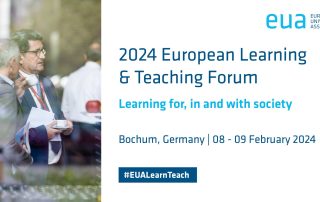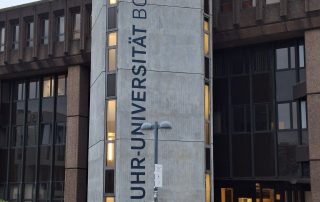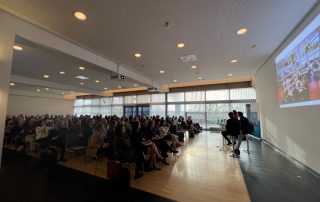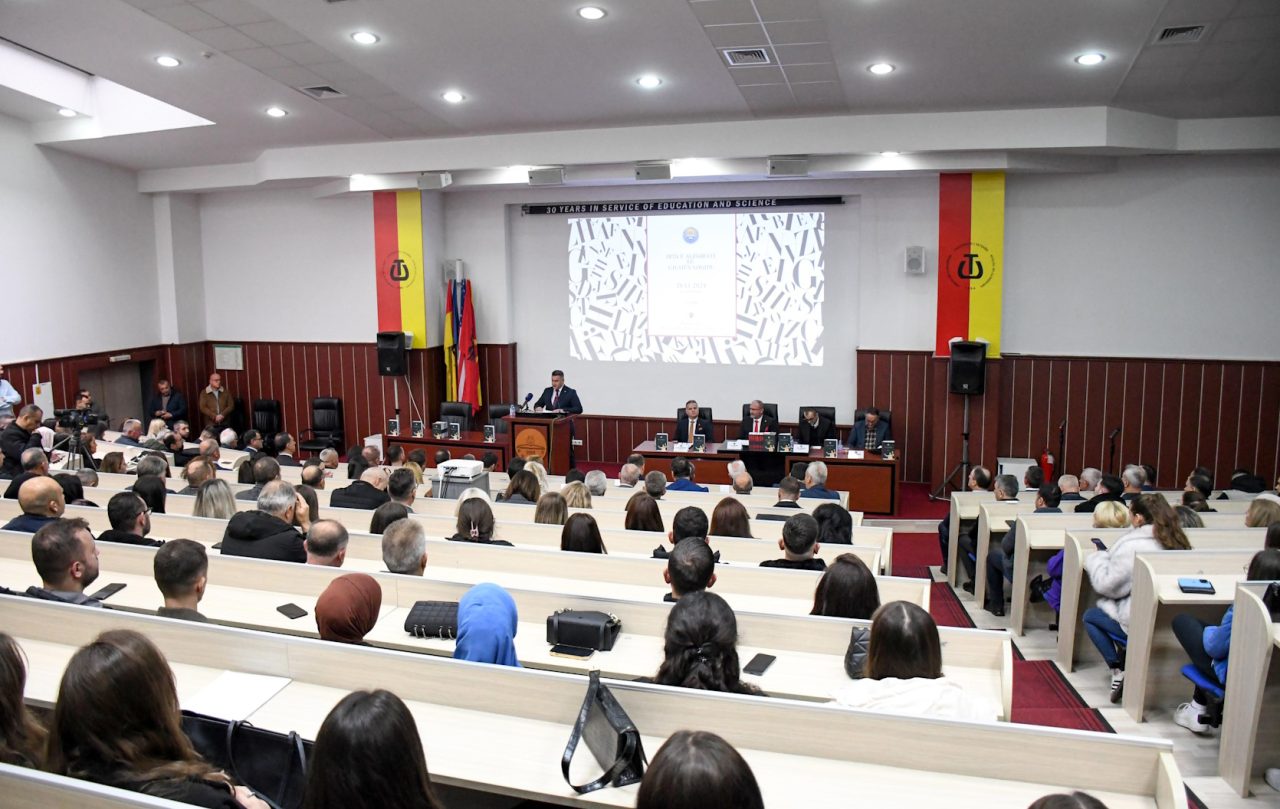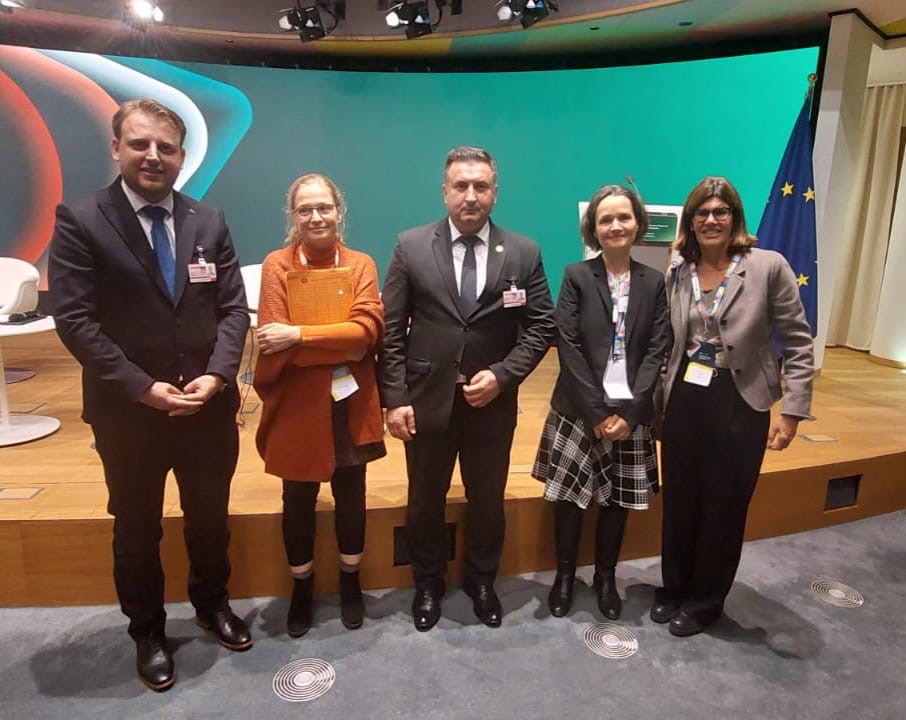On February 8 and 9, 2024, representatives from the University of Tetova participated in the European Learning and Teaching Forum that was held at “Ruhr University” in Bochum, Germany. “Learning for, in and with society” was the central topic that was addressed in this forum. Inspired by the European University Association’s vision for 2030, “Universities without walls”, the 2024 European Learning & Teaching Forum will explore the various links between the societal responsibility of higher education and universities’ learning and teaching activities.
The event will address learning from three perspectives: “For society”, because there are many ways in which universities can have an impact as learning institutions in service to society, and demonstrate this, for example through community-based learning and open education.
“In society”, because universities can only truly serve society if higher education is based on a comprehensive, agile and forward-looking understanding of learning and skills’ needs, for example through collaborative projects to address societal challenges.
With society, because universities need the exchange and engagement of all stakeholders and their broader community to understand, respond to and address current and future learning and skills requirements, including in the context of artificial intelligence, for example through co-curricular and other co-creative approaches to learning and teaching.
Through a mix of plenary and parallel sessions, the Forum provides a platform for discussion and exchange of practice on how universities enhance learning and teaching. The Forum also presents the work of the 2023 EUA Learning & Teaching Thematic Peer Groups. It aims to gather higher education professionals working at different levels on matters of learning and teaching to exchange and discuss institutional practice and policy developments. The Forum is an ideal event for vice- rectors for academic affairs, deans, heads of learning and teaching centres, and management involved in learning and teaching. It also welcomes students, policy makers and other stakeholders in higher education.


